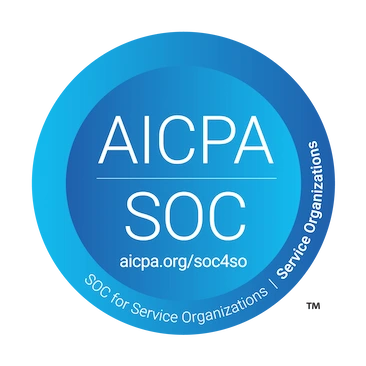The INFORM Consumers Act represents a significant shift in regulating online transactions to enhance transparency and curb the sale of illicit or unsafe goods. This legislation imposes stringent requirements on “online marketplaces,” particularly those hosting “high-volume third-party sellers” offering new or unused “consumer products.” The law mandates the collection, verification, and disclosure of specific information about these sellers. We dig into the intricacies of INFORM, explore its implications for both marketplaces and sellers, and examine tools and technologies that can ease compliance with these new regulations.
The rapid growth of online marketplaces has made them a crucial part of the global economy. With the convenience of shopping from anywhere at any time, more and more consumers are turning to online marketplaces for their purchases. For example, Etsy, an e-commerce company focused on handmade and vintage items, saw its number of active buyers grow by 920% between 2012 and 2022.
This growth in demand is also reflected in the growth of third-party sellers conducting their business through online marketplaces. For example, in 2004, 28% of all items sold on Amazon were from third-party sellers, and today this group makes up 60% of all sales made on the platform.
However, with this increase in popularity comes an increase in potential risks for consumers. A general lack of regulation and oversight over these platforms has left consumers vulnerable to scams, counterfeit products, and data breaches.
To address these concerns, the United States Congress introduced the INFORM Consumers Act in 2021. Effective as of June 27, 2023, the act aims to protect consumers by increasing transparency and accountability for online marketplace companies.
What we cover
Overview of the INFORM Consumers Act
The INFORM Consumers Act, which stands for Integrity, Notification, and Fairness in Online Retail Marketplaces, was introduced by Senator Richard Blumenthal and Representative Jan Schakowsky to Congress in March 2021. The act aims to hold online marketplaces accountable for the products and sellers on their platforms, similar to traditional brick-and-mortar retailers.
The main objectives of the act are to:
- Increase transparency by requiring online marketplaces to display seller information, including contact details and location
- Notify consumers about third-party sellers on a marketplace platform and whether they are purchasing from the marketplace or directly from a third-party seller
- Ensure fair business practices by requiring marketplaces to verify the legitimacy of sellers and their products
- Ensure fairness for small businesses by preventing anti-competitive practices from larger marketplace companies
These objectives are crucial for protecting consumers from fraudulent or unsafe products, as well as promoting fair competition among marketplace platforms.
Understanding the INFORM Consumers Act
The INFORM Consumers Act has specific objectives to protect consumers and promote fair competition among marketplace platforms. To achieve these objectives, the act includes several key provisions:
- Seller verification: Online marketplaces must verify “high-volume” third-party sellers by collecting and verifying their bank account, contact information, and tax ID information.
- Display of seller information: Marketplaces are required to display seller information, including contact details and location, on their platforms.
- Notification of third-party sellers: Consumers must be notified when purchasing from a third-party seller instead of the marketplace itself.
- Preventing anti-competitive practices: The act aims to prevent larger marketplace companies from engaging in anti-competitive practices that disadvantage smaller businesses.
These provisions are crucial for achieving the objectives of the act and ensuring a safer and fairer marketplace for consumers.
How the act affects online marketplaces
As part of INFORM’s objectives, online marketplaces are required to “collect and verify bank account information, contact information, and tax ID information from high-volume third-party sellers that sell consumer products through those online marketplaces’ platforms, and to disclose to consumers identifying information for certain high-volume third-party sellers, subject to exceptions.“
The INFORM Consumers Act introduces additional requirements and responsibilities for online marketplace companies. Some of the key impacts include:
- Increased compliance: Online marketplaces will need to ensure they are complying with the act’s provisions, which includes implementing stricter seller verification processes and displaying accurate seller information.
- Data protection: Marketplaces will also need to protect the data collected to comply with the act, which includes implementing measures to secure and safeguard consumer information.
- Fair competition: The act aims to promote fair competition among marketplace companies by preventing anti-competitive practices, providing smaller businesses with a level playing field.
- Improved consumer trust: With increased transparency and accountability, consumers can have more trust in the products and sellers on online marketplaces.
In short, the INFORM Consumers Act will have a significant impact on how online marketplaces operate and conduct their business. Compliance with the act is crucial for protecting consumers and promoting fair competition among marketplace companies.
Compliance requirements under the INFORM Consumers Act
For online marketplace companies to comply with the INFORM Consumers Act, they will need to implement several measures:
- Implement seller verification processes to ensure high-volume third-party sellers are legitimate and trustworthy
- Display accurate seller information, including contact details and location, on their platforms
- Notify consumers when purchasing from a third-party seller on the marketplace platform
- Protect consumer data collected to comply with the act through secure measures
- Ensure fair competition among marketplace companies, preventing anti-competitive practices
- Suspend high-volume third-party sellers who do not provide the required information
- Provide consumers with a mechanism to report suspicious marketplace activity to the online marketplace
These provisions do come with added responsibilities for marketplace companies, increasing the administrative law and costs. However, compliance with the INFORM Consumers Act is essential for meeting consumer expectations and protecting their rights.
Impact on sellers and marketplace operators
The impact of the INFORM Consumers Act can be broken down into two categories: sellers and marketplace operators.
Sellers: The act can affect sellers on online marketplaces in various ways. They will need to provide additional information for verification, which may require more time and effort. However, this also means that consumers can trust their purchases more, leading to increased sales potential.
Marketplace operators: Marketplace companies are responsible for implementing the necessary measures to comply with the act. This will involve additional costs and potential changes to their operations. Failure to comply can result in fines and damage to their reputation.
How online marketplace companies choose to adapt to these changes and comply with the INFORM Consumers Act will ultimately determine their success in the marketplace industry.
By prioritizing consumer protection and fair competition, marketplace operators can maintain consumer trust and create a more level playing field for all businesses on their platform.
However, these benefits do come with the operational challenges of compliance and the added administrative burden.
As such, it is crucial for marketplace companies to carefully plan and implement a compliance strategy that ensures they meet the requirements of the INFORM Consumers Act while also maintaining their business operations efficiently.
Implementing compliance measures
Reducing the burden of compliance and ensuring the smooth operations of a marketplace platform can be achieved through these strategies:
- Automated processes: Utilizing technology to automate seller verification and data protection processes can streamline compliance measures and reduce the administrative burden.
- ID verification services: Outsourcing seller verification to third-party services can help ensure accurate and thorough verification while also reducing costs for marketplace operators.
- Regular audits and reviews: Conducting regular internal audits and reviews can help identify any areas of non-compliance and provide opportunities for improvement before any issues arise.
- Providing guidance and training: Marketplace operators should provide guidance and training to sellers on compliance with the act, including best practices for seller verification and data protection.
By implementing these strategies, marketplace companies can ensure compliance with the INFORM Consumers Act while also minimizing the impact on their operations and resources.
Tools and technologies to aid compliance
There are also various tools and technologies available to help marketplace operators comply with the INFORM Consumers Act:
- Identity verification software: These software solutions utilize artificial intelligence and machine learning algorithms to verify seller identities, ensuring accuracy and efficiency.
- Data protection tools: To secure consumer data, marketplace companies can utilize data protection tools such as encryption and firewalls.
- Compliance management software: These software solutions help streamline compliance measures by organizing and tracking necessary tasks and requirements.
- Automated audit tools: To conduct regular audits, marketplace operators can utilize automated audit tools that identify potential non-compliance issues in real time.
By utilizing these tools and technologies, marketplace companies can ensure efficient and accurate compliance with the INFORM Consumers Act without unduly burdening their operations.
Best practices for marketplace operations
Apart from compliance measures and implementing tools and technologies, there are also best practices that marketplace companies can follow to ensure ethical and fair operations. These include:
- Transparency: Marketplace operators should be transparent with consumers about their platform’s policies and procedures, including seller verification processes.
- Regular review of third-party sellers: Regularly reviewing third-party sellers on the platform can help identify any potential fraudulent or non-compliant activities.
- Open communication channels: Providing open and accessible communication channels for consumers to report suspicious marketplace activity can help prevent fraud and protect consumer rights.
- Data protection measures: Marketplace companies should prioritize the protection of consumer data and regularly review and update their data protection measures.
By following these best practices, marketplace operators can maintain a trustworthy and fair marketplace environment, which is crucial for compliance with the INFORM Consumers Act.
Choose the right partner for long-term compliance success!
The INFORM Consumers Act represents a significant shift in the regulatory landscape for online marketplaces, emphasizing the need for enhanced trust and security measures to combat fraud. As e-commerce continues to expand, the implications of this new law underscore the importance of proactive compliance.
At Trolley, we recognize the gravity of these changes and are committed to staying ahead of the curve.
To address the evolving requirements of INFORM, Trolley offers a suite of tools designed to empower merchants to meet compliance standards. Our Trust product recently launched with its robust Identity Verification (IDV) tool.
Trolley Trust has built-in:
- Identity & document verification: Collect and validate IDs versus 11,000 official government ID templates from over 200 countries.
- Live photo validation: Use the power of image recognition to ensure the uploaded ID is from the actual person submitting it.
- Proof of address and age comparisons: Verify details provided during onboarding, such as address and DOB, with the ID document.
- Monitoring dashboards: Manage the KYC and IDV process from a single screen where you are alerted to actions you may need to take.
Integrated into our comprehensive platform, these features not only ensures compliance with the INFORM Consumers Act but also provides a seamless and secure experience for merchants and buyers alike.
As marketplaces navigate the complexities of these new regulations, Trolley stands ready to assist. Our commitment to data security, risk mitigation, and fraud prevention is unwavering. Explore how Trolley Trust can help your online marketplace thrive within the framework of the INFORM Consumers Act.












